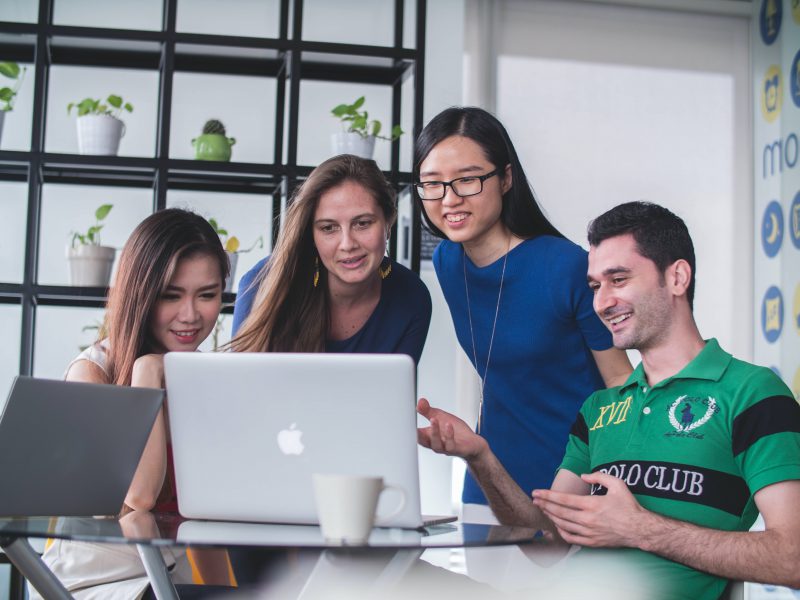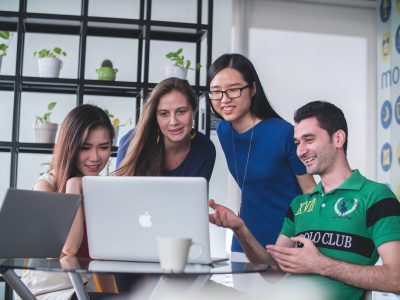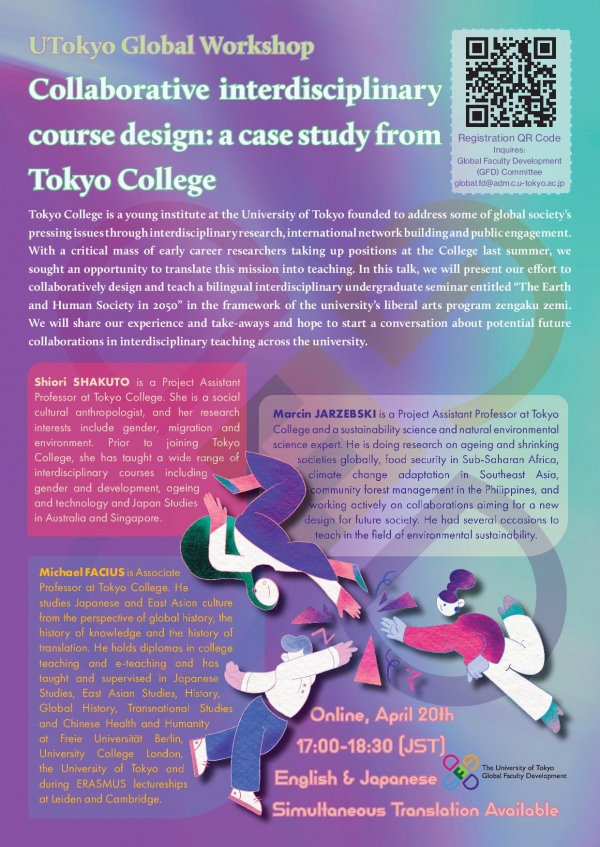Collaborative interdisciplinary course design: a case study from Tokyo College

The event report is published on the Global Faculty Development Initiative website.
Watch the recording of Workshop:
| Date(s) | Tuesday, 20 April 2021, 5:00-6:30 pm |
|---|---|
| Venue |
Online workshop (Register here) |
| Registration | Pre-registration required |
| Language | English-Japanese (simultaneous interpretation) |
| Abstract |
Tokyo College is a young institute at the University of Tokyo founded to address some of global society’s pressing issues through interdisciplinary research, international network building and public engagement. With a critical mass of early career researchers taking up positions at the College last summer, we sought an opportunity to translate this mission into teaching. In this talk, we will present our effort to collaboratively design and teach a bilingual interdisciplinary undergraduate seminar entitled “The Earth and Human Society in 2050” in the framework of the university’s liberal arts program zengaku zemi. We will share our experience and take-aways and hope to start a conversation about potential future collaborations in interdisciplinary teaching across the university.
You can visit the event page of the Global Faculty Development Initiative, the main organizer of the online workshop, here. |
| Program |
Shiori SHAKUTO is a Project Assistant Professor at Tokyo College. She is a social cultural anthropologist, and her research interests include gender, migration and environment. Prior to joining Tokyo College, she has taught a wide range of interdisciplinary courses including gender and development, ageing and technology and Japan Studies in Australia and Singapore.
Michael Facius is Associate Professor at Tokyo College. He studies Japanese and East Asian culture from the perspective of global history, the history of knowledge and the history of translation. He holds diplomas in college teaching and e-teaching and has taught and supervised in Japanese Studies, East Asian Studies, History, Global History, Transnational Studies and Chinese Health and Humanity at Freie Universität Berlin, University College London, the University of Tokyo and during ERASMUS lectureships at Leiden and Cambridge.
Marcin JARZEBSKI is a Project Assistant Professor at Tokyo College and a sustainability science and natural environmental science expert. He is doing research on ageing and shrinking societies globally, food security in Sub-Saharan Africa, climate change adaptation in Southeast Asia, community forest management in the Philippines, and working actively on collaborations aiming for a new design for future society. He had several occasions to teach in the field of environmental sustainability.
|
| Organized by | Global Faculty Development Initiative/Tokyo College, The University of Tokyo |















